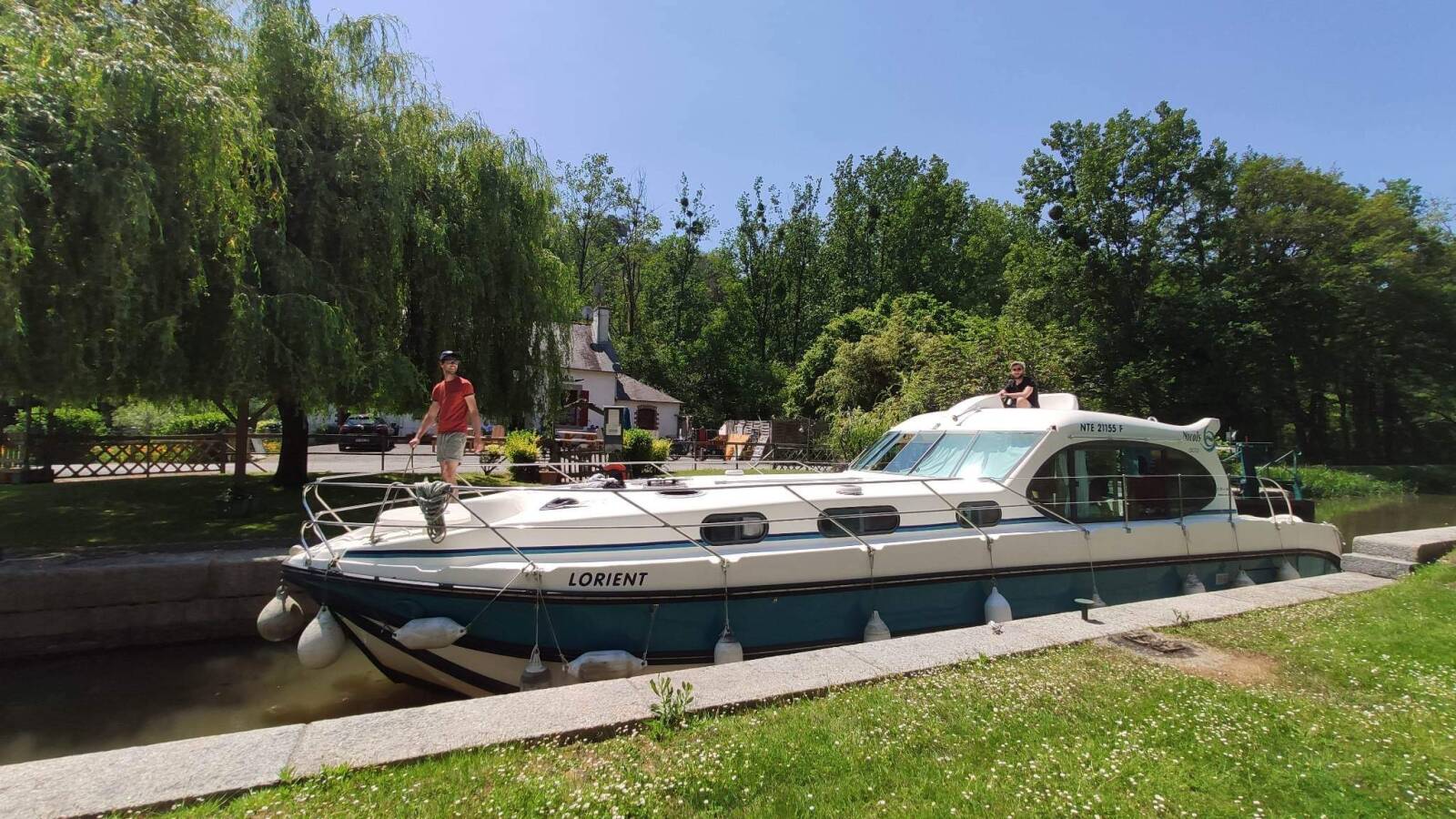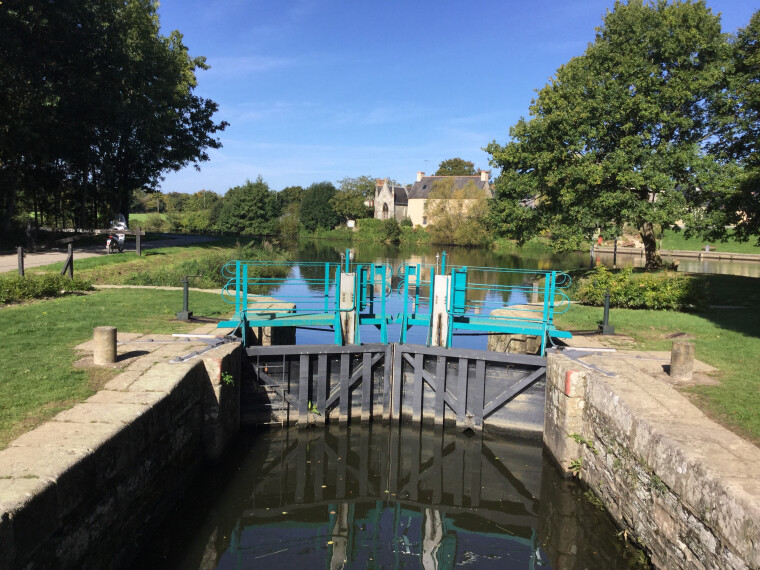Who are the lock-keepers? What do they do? Here's the answer to 5 questions you may have about lock-keepers!
Why don't we start with a little riddle? Are you ready? You may come across them several times a day during your navigation. Without them, you wouldn't get very far. They're charming and love to share anecdotes and advice... So, do you know who we're talking about? It's the lock-keepers! What would you say to a closer look at this unusual profession?
To help you understand it a little better, we'll answer the 5 questions you're most likely to ask.
What does the job of a lock keeper really involve?
These are the men and women who make river cruises possible and more enjoyable every day. Yes, you're bound to come across them on your houseboat cruise! They are all professionals who manage, operate and maintain the waterways. Above all, they control the operation and passage of the mechanised locks. In practical terms, their role is to raise or lower your licence-free boats by adjusting the water level in the locks. So don't panic when you're cruising on a licence-free boat, they're also there to ensure the safety of the boats, the locks and the boaters!
But how do you become a lock operator?
Well, you don't just need muscles to operate the lock gates! The job of lock keeper is open to people with a level 3 diploma or who have passed the lock keeper competition. They must have a swimming certificate and be able to manoeuvre a boat quickly without a licence-free. To become a lock keeper, you also need to:
- Know how to speak English: it's pretty important to be able to communicate with boaters of all nationalities, don't you think 😉
- Know all the regulations and safety rules: oh yes, it's reassuring!
- Good interpersonal skills: lock-keepers are there to welcome you, guide you, reassure you and, above all, share their passion for the river with you.
- You need to be in good physical condition: lock-keepers can be in charge of several lock stations at a time, so they have a busy schedule! You didn't think they'd be waiting for you sunbathing on their deckchairs, did you? 😂
How long has the profession of lock keeper existed?
The profession of lock keeper has existed for centuries, ever since canals were built to transport goods, dating back more than 2,000 years. Qiao Weiyue is said to have invented the lock in China in 984 - impressive, isn't it? What about you? Have you ever thought of creating such a mechanism? From the 16th century onwards, locks were used in France on the Ourcq, the Vilaine and the whole of the Lot (the first river to be entirely developed using this new invention). Since then, lock-keepers have been responsible for opening and closing the manual lock gates. Today, locks are increasingly automated, but the lock-keeper's job is still there!
What do they do when the locks are closed during the winter period?
During the winter period, from the beginning of November to the end of March, the waterways are closed to all cruises. During this period, lock-keepers rest. No, we're joking! He is responsible for maintaining the basins, locks and gates, as well as checking the condition of the diversion bays (navigable parts of the canal). The lock-keeper never gets bored!
Why are some locks not operated by lock staff?
Some locks may be automated or electronically controlled, so it will be up to you to operate the locks, but don't worry, it's not complicated! On the other hand, if you're navigating on a licence-free boat on the Lot, Charente and Seille, the locks are manual and there are no lock-keepers. You can leave your captain's hat behind and put on your lock-keeper's hat - it's a real team effort!
As you will have realised, the lock-keeper's job is important and essential to the smooth running of your river cruises. These men and women are there to make your journey on the water as pleasant as possible. Take the time to talk to them, they're passionate about their work and will no doubt tell you their best anecdotes! So don't wait any longer and set off on a river cruise to meet them 🙂

